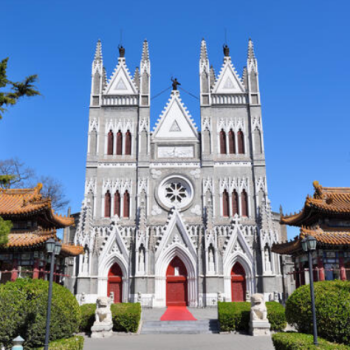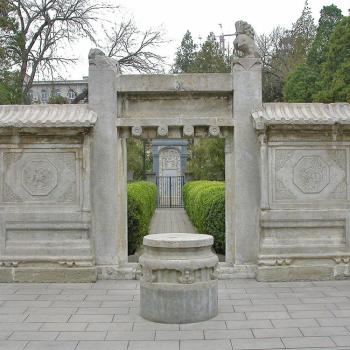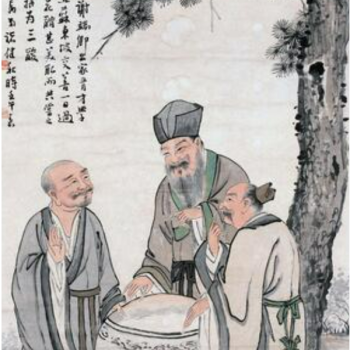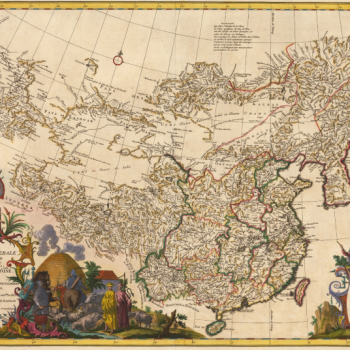Well, this is not how I expected to start off the first “real” entry in this column but, with my column launching just in time for today, it seems like the right choice. Today, I am going to talk a little about the man who is perhaps the most colorful and extraordinary character in American history: the Emperor Norton.
On September 17th, 1859, bankrupt immigrant businessman Joshua Abraham Norton entered the offices of the Daily Evening Bulletin and asked that a notice be printed. That notice was a proclamation, announcing that, “At the peremptory request of a large majority of the citizens of these United States, I, Joshua Norton … declare and proclaim myself Emperor of these U.S.” Thus began the twenty-year reign of Norton the First, the self-proclaimed Emperor of the United States and Protector of Mexico.
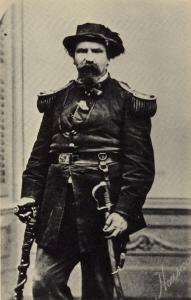
Of course, much has been said and written about that reign, of how police officers on the San Francisco streets saluted the Emperor whenever he walked past, how he printed his own currency (in the form of promissory notes that he personally signed as he gave them out), or of how his funeral was attended by between 10,000 and 30,000 people—and was capped off by an eclipse of the sun. Most people who have encountered the story of the Emperor have been inclined to view him primarily as a figure of fun, given the strangeness of it all. Not only did a man once declare himself America’s Emperor, but he managed to keep up the claim for two decades while being embraced (if oftentimes also mocked) by San Francisco at large for it!
But while there is something undeniably weird and whimsical about the whole situation, the Emperor himself was no shambling kook. The folks over at the Emperor Norton Trust (www.emperornortontrust.org) have done good work in recent years to promote and popularize something that Emperor aficionados have always known: Emperor Norton, whether or not he really fancied himself a monarch, possessed an astute mind and promoted a remarkably progressive political and social program. Among his proclamations was one calling for the founding of a League of Nations roughly half a century before it came into being and several which call for a bridge over San Francisco Bay in the same location and according to the same design as the Bay Bridge that would eventually be built. Norton challenged discrimination against Chinese immigrants and African Americans, signed a petition in support of women’s suffrage, and called for an end to the genocide against the Native Americans. All in all, it’s not a bad record for a man who walked the San Francisco streets in a military uniform and a top hat plumed with peacock feathers.
More germane, however, to the themes of this column is Emperor Norton’s stance toward religion. Religion was a subject which was never far from the Emperor’s thoughts, and the battle against religious tolerance was one which he took fully to heart. To understand the reasons for this, one must know that Joshua Norton was born to and grew up in a Jewish family. In his earlier years, he seems to have developed a skepticism to this faith. William Drury, whose Norton I, Emperor of the United States remains the most thorough, albeit imperfect, biography of the Emperor, believes that he came to Christianity as a boy due to it being promoted in the schools of British South Africa, “This daily instruction in Christianity would have a telling effect on a boy who had to chant prayers in Hebrew at home … Joshua’s immature mind was bound to bend under the combined weight of church and state” (17). Whether this is true or not, the young man had come to display a disapproval of Judaism by the time he set out for America.
But a more mature Joshua Norton, now reigning in his mind as emperor of the most powerful nation in the Americas, appears to have undergone a change of heart. Emperor Norton displayed great concern for the Jewish faith and sensitivity for the frequent harassment and persecution which the Jewish community faced. For example, he once attempted to overturn a law which required shops to close for Sundays but not Saturdays on the grounds that it unnecessarily penalized Jewish shopkeepers. But this did not mean that he now rejected of Christianity. Instead, the Emperor was looking to promote an all-inclusive religious tolerance. To this end, he adopted a routine of attending services in the synagogue on Saturday and at a Christian church (always a different denomination) the day after. He often addressed the need for mutual respect and acceptance in his proclamations—in one of his bromides against religious bigotry, he offers the striking if somewhat mordant observation, “Take three little ropes, red, white and blue, And [sic] they will hang Catholic, Protestant and Jew. But, unravel the ropes and weave them, and you have the colors to make a beautiful Flag—one that blesses and protects all who live under it.” (March 13th, 1875)—and maintained longstanding friendships in both Jewish and Christian communities. At a time when not only the members of the Jewish faith but also Catholics faced widespread prejudice in the United States, this attitude was nothing short of remarkable.
And yet, Emperor Norton was more than just an advocate for tolerance. He did not just seek mutual respect and understanding, as important as those things are. He sought and actively worked to achieve a religious reconciliation between Protestantism, Catholicism, and Judaism. As John Lumea, founder and director of the Emperor Norton Trust, remarks in one of their ever-informative articles, “he issued a number of Proclamations calling for the establishment of something like a universal religion” (“A Jewish Memorial for the Emperor”). Drury suspects that the Emperor was put onto this idea by his favorite minister, Horatio Stebbins of the First Unitarian Church. Stebbins preached an ecumenical Christianity, but one which Emperor Norton was bound to find wanting, “Dr. Stebbins urged the unification of all Christian churches, without giving a thought to synagogues” (160). But the Emperor would go much further than this as he developed broader vision for the future of faith.
It was in the back half of 1871 that Emperor Norton issued his fullest statement of this idea. Declaring, “Religion is like a beautiful garden” and fearing that religious conflict could eventually spark a world war, “carrying in its winding course death, pestilence, famine, devastation and rain”—when a world war came, it would emerge from other causes, but the Emperor was prescient about its effects—he asked that “all communities select delegates to a Bible convention … for the purpose of eliminating all doubtful and disputed passages contained in the present printed edition of the Bible.” And while this is one of the more flowery of the Emperor’s proclamations, he was blunt about what he hoped to achieve, namely, “the obliteration of all religious sects and the establishment of an Universal Religion” (September 29th, 1871). Emperor Norton expected that when all groups and communities were represented in the discussion—and other proclamations make clear he was thinking about the world’s population rather than America’s alone—then it would be possible to bypass the causes of sectarianism and fashion a single holy book and faith that works for everyone.
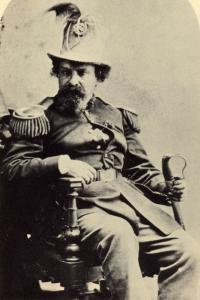
This was an incredible, idealistic notion, one that was perhaps as painfully naïve then as it is now. But Emperor Norton was fully invested in it; he broached the subject in proclamation after proclamation. Perhaps Emperor Norton’s desire to see the world united under a single religion is not enough to qualify him as a religious utopian. But the fact that his motives were to end hatred, bigotry, and conflict, as well as the fact that he thought this all could be achieved just by getting enough different sorts of people to talk to each other, surely does. For the Emperor, the world united in peace and brotherhood by one faith that encompassed the truth of all was not just a pleasant fancy. In his mind, it was a realistic possibility, and one which he was in a particularly suitable position to achieve.
Like so many utopias, Emperor Norton’s universal church of perfect love and acceptance was never to be. But that does not mean it was born of those delusions of grandeur he is so often accused of. Rather, he was attempting to find a serious solution to the religious hatred he witnessed in the city he loved and the specter of conflict which always seems to loom over every moment of interfaith encounter. The quest for a universal religion was one more piece of the Emperor’s larger project to grapple with and overcome the contradiction of a country loudly proclaiming itself to be for everyone while openly treating so many racial, religious, gendered, and other groups with hatred, derision, and exclusion. He was, to his credit, working on the problem of America’s propensity toward prejudice before nearly anyone else. And while some of his solutions might be impossible, it must be said that, now that problem has become all of ours to solve, we have yet to come up with anything better.
It should be noted too that here, as in so many other things, Emperor Norton saw the future. While religious unity is still as distant as ever, the prospect has certainly inspired no end of idealistic movements, particularly on the New Age side of the spectrum. Perhaps it would have amused the Emperor to know that his capital city would later become the mecca for disaffected young people and countercultural icons looking for the same things he was. Or perhaps he would have nodded approvingly had he known that the First Unitarian Church where his favorite minister preached would go on to help pioneer the Unitarian Universalist movement, which attempts to be the kind of all-inclusive religion he envisioned. And even if his dream for a faith where all can truly belong never comes to pass, we should do our best to recall the values that inspired it: brotherhood, tolerance, acceptance, and a genuine love of all humanity. We pay more lip-service to those virtues now than in Emperor Norton’s day, but that does not mean that we put them into practice any better. Thus, on this Empire Day, in this one-hundred sixty-third year of his reign, we should all commit ourselves once more to those immortal words which were once spoken over the Emperor’s grave:
“Live like him.”
Note: This article quotes primarily from two sources, William Drury’s Norton I, Emperor of the United States (New York: Dodd, Mead, and Company, 1986), and the website of the Emperor Norton Trust (www.emperornortontrust.org), maintained and operated by the Trust’s founder, John Lumea. The Emperor Norton Trust is a non-profit organization which advocates for renaming the San Francisco-Oakland Bay Bridge after the Emperor and otherwise spreads awareness of his life and works. I have also relied on the Emperor Norton Project maintained by Shawn P. Wilder (https://www.libertarian-labyrinth.org/category/emperor-norton-project/) for the exact wording and dates of some proclamations. I still have some thoughts about Emperor Norton in relation to nineteenth-century America’s well-documented national millennialism, but this entry is long enough as it is, and I need something for next January.


